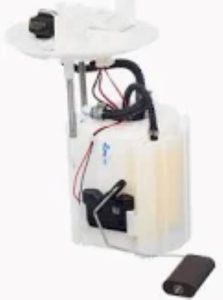Proper diagnostic work on a fuel pump starts with observation of changes in engine performance. One of the most common symptoms is with fuel pressure levels, which should be 30 to 80 psi on a regular basis (varies from vehicle manufacturer and models). Engine sputtering is a typical symptom associated with decreases in this pressure, particularly at higher speeds. A 20% reduction in engine efficiency is a definite problem you do not want to ignore, as it indicates pump issues which will require immediate action based on this data from automotive studies.
If so this could also indicate a problem with the fuel pump starting. With use, pumps create internal wear differences lead them to pressurize fuel under pressure less efficiently. Over 100,000 miles and pumps generally begin to wear out regularly experience extended crank times. Fuel pumps just typically start to fail at this juncture with the industry saying that a lack of normal fuel filter maintenance will bring those startup problems on sooner.
Strange sounds emanating from the fuel tank, such as a high-pitched whine or buzz, are generally an indication of pump strain caused by sand accumulation or failing pieces. When fuel levels are lower, the electric motor on the pump is stressed and these sounds become loud, according to experts at RepairPal. Ignoring these noises can cause sudden failure as the fuel pump is black and you put more burden on it with clogged filters or hardened rotors.

If the car stalls instead, especially when trying to accelerate or during high load, chances are you have a broken fuel pump. Pumps have to flow a lot of fuel, a fact that becomes all the more obvious under high-stress conditions meaning an inconsistent pump can't keep up. This can be compounded under hot temperatures, as heat increases fuel vapor pressure and could lead to vapor lock and an engine stall. For warmer regions of the country, rates of such failures cause a 15% jump in fuel pump replacements during the summer.
Signs of damger can be power surges, dips or reduced fuel efficiency as it will force the engine to burn more gas in order to compensate which could reduce gas mileage by up to 10 percent. The cost of this inefficiency can add up, as full pump replacements usually run between $300 and $1,000, depending on vehicle model and location. The badly distilled gasoline, also contribute to these issues by clogging the filters on these pump over time and reduce their lifespan.
If fuel delivery does not keep up with the needs of the engine, then a new one may be in order. To learn more about choosing and caring for a fuel pump in your car, read Fuel Pump to find resources that provide better performance through tips on diagnosing and fixing fuel pump problems according to the needs of your vehicle.